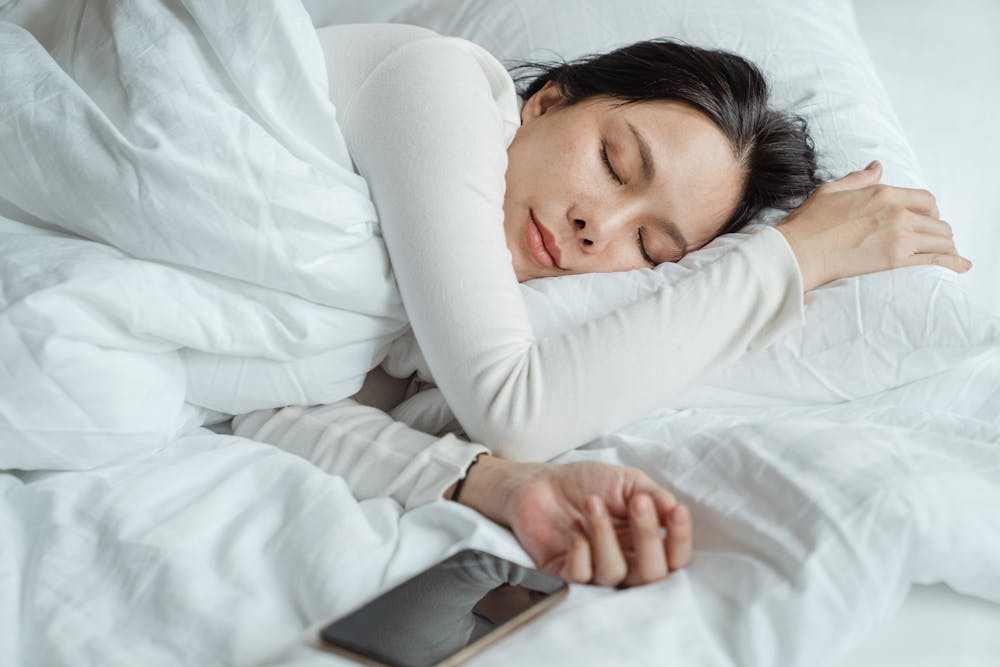“This is the last video,” I say to myself.
Next thing I know, it’s 3 a.m., and I’m still eager to watch another TikTok video even though I have class in six hours. I hear in the back of my head, “You’re screwed.” Many other students probably hear the same two words echoing in their minds. Even with class early in the morning, we are night owls, unable to go to sleep.
While our phones are useful for staying in touch with friends and family or impromptu web searches, our inability to put them away at night can have serious consequences for our mental and physical health. However, by developing nighttime routines, students can exercise more self-control when it comes to screen time.
Sleep is a common problem for college students, and it’s never a surprise to find someone nodding off in the middle of class. A study across six universities found that 62% of college students met the criteria for poor sleep. In addition, the study found distinct patterns of mental health symptoms related to sleep problems, and it was revealed that anxiety, depression and ADHD symptoms were each independently associated with poor sleep status.
To make sleep problems worse, nearly all Hopkins students use a smartphone. They can be used anywhere at any time, and users have all forms of social media at their fingertips. I bet that you even go to sleep with your phone right next to you. While smartphones make our lives easier in many ways, they also may be a risk factor for poor sleep. A study of freshmen from the University of California, Los Angeles found that students who reported using social media late on weeknights experienced lower sleep quality.
Unsurprisingly, individuals with smartphone addictions are inclined to push their bedtimes back to squeeze in more scrolling. Bedtime procrastination is defined as going to bed later than intended without external circumstances preventing individuals from doing so.
With all the apps and social media available to Hopkins students, ranging from TikTok to Sidechat, many of us are guilty of bedtime procrastination. In addition to going to sleep later, those with smartphone addictions may experience higher rates of depression and anxiety, which further demonstrates the risk smartphone use can pose to our mental health.
Bedtime procrastination is linked to not only poor mental health but also physiological problems. Researchers from McGill University and the University of Toronto found that sleeping late is associated with more frequent headaches, stomach aches, backaches and dizziness among adolescents. It is also associated with unhealthy behaviors like drinking soft drinks, smoking, eating fewer vegetables and consuming energy drinks.
Although this data was collected among 10 – 18 year olds, I believe it is still applicable to college students. When the study mentioned unhealthy behaviors, my mind went straight to Hopkins student traditions like eating ice cream in the dining halls during late night or 2 a.m. UniMini runs for chicken tenders and fries.
To combat bedtime procrastination and screen addiction, the solution ultimately comes down to self-control. Even if you can't completely break your phone addiction, exercising more self-control may alleviate some of the negative consequences. College students who scored higher on self-control assessments suffered less from depression and anxiety even when they were at risk of screen addiction.
Students who find themselves glued to their phones should develop a habit of monitoring their screen time. Especially at Hopkins, students already face constant academic pressures, and I don’t think anybody wants or needs additional stress from a phone addiction. I started to set multiple alarms at night to remind myself to put my phone away as a way of combating my bedtime procrastination. When I am mindlessly scrolling through Instagram, I despise the incessant beeping so much that I have to put my phone away.
However, other strategies work better for others. I encourage all students to find a nightly routine that works for them. We have the power to fix our sleep schedules, improve our health and mean it when we say, “This is the last video.”
David Tan is a senior from Solon, Ohio majoring in Molecular and Cellular Biology.





